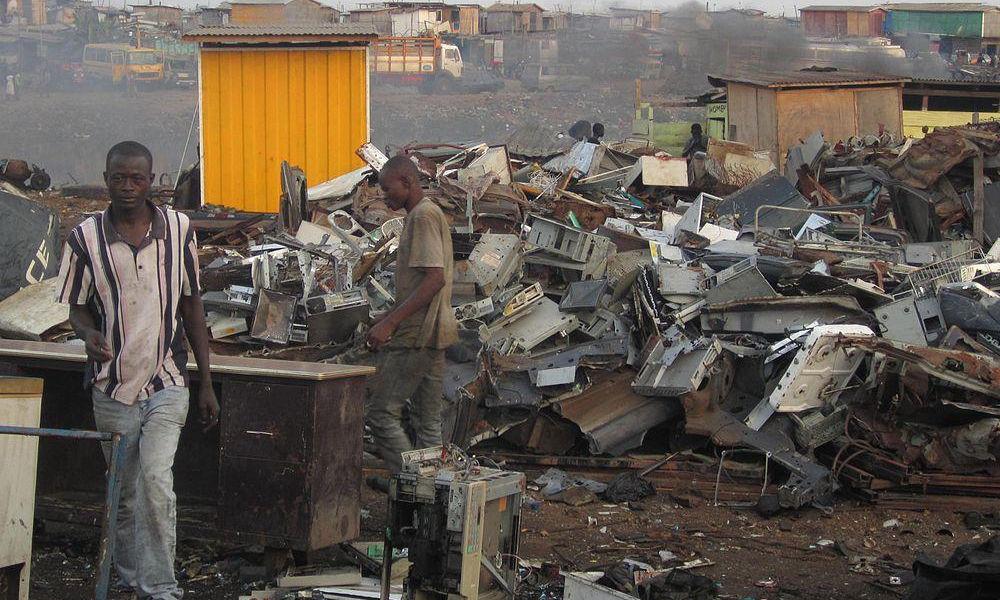A record 53.6 million tonnes of electronic waste was generated globally in 2019, up by 21 per cent in just five years, according to the UN’s Global E-waste Monitor 2020 released on Thursday, July 3.
With 10.1 million tonnes, China was the biggest contributor to e-waste, and the United States was second with 6.9 million tonnes. India, with 3.2 million tonnes, was the third biggest contributor. The three countries accounted for nearly 38 per cent of the world’s e-waste last year.
Asia generated the greatest volume of e-waste in 2019 with 24.9 million tonnes, followed by the Americas with 13.1 million tonnes and Europe with 12 million tonnes.
Meanwhile, only 17.4 per cent of last year’s e-waste was recycled. ‘The way in which we produce, consume, and dispose of e-waste is unsustainable,’ the report said.
According to the report, as a result of inadequate recycling of ‘undocumented’ refrigerators and air conditioners, 98 million tonnes of carbon dioxide equivalents were released into the atmosphere. Proper e-waste management can help alleviate global warming, it added.
It added that the e-waste surged 21 per cent over the past five years and predicted that it will reach 74 million tonnes by 2030 – almost a doubling of electronic waste in just 16 years.
‘E-waste is a health and environmental hazard, containing toxic additives or hazardous substances such as mercury, which damages the human brain and coordination system,’ the report said.
‘An estimated 50 tonnes of mercury — used in monitors, PCBs [printed circuit boards], and fluorescent and energy-saving light sources — are contained in undocumented flows of e-waste annually,’ it added.
In developing countries, e-waste is linked to the rising demand for goods like washing machines, refrigerators and air conditioners.
‘In middle- and low-income countries, the e-waste management infrastructure is not yet fully developed or, in some cases, is entirely absent,’ the report said.
Also Read: Scientists Find Microplastic In Antarctic Terrestrial Food Chain












